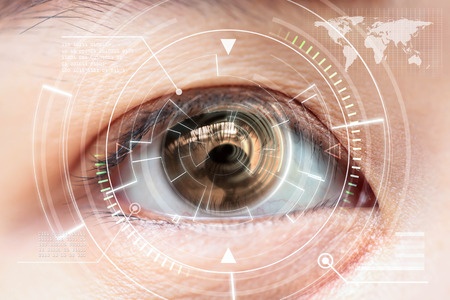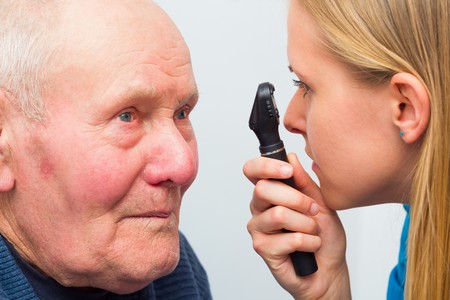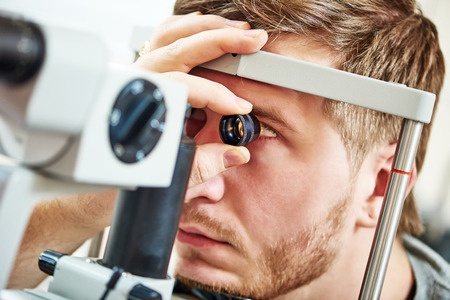January is Glaucoma Awareness Month
Glaucoma is the second most common cause of blindness in the United States, and an estimated 1 million people in the U.S. over the age of 65 have glaucoma-related vision…
Glaucoma is the second most common cause of blindness in the United States, and an estimated 1 million people in the U.S. over the age of 65 have glaucoma-related vision…
As a leading cause of blindness among Americans, glaucoma is a condition not to be taken lightly. By better understanding this disease and its impact on the health of the…
 Glaucoma is a very common cause of visual disability world-wide. Sadly is often preventable.
Glaucoma is a very common cause of visual disability world-wide. Sadly is often preventable.
Many people with glaucoma have no early symptoms. So early detection is the key! The sooner glaucoma is diagnosed and treated the better the chances of keeping your eyesight in most cases.
Many people do not realize that there are actually many types of glaucoma. A common misconception is that the eye pressure has to be high to have the disease!
The most common type is open-angle glaucoma. In this type of glaucoma, there are few symptoms before vision begins to wane. The most common symptom that people notice is gradual loss of peripheral vision in from of the other eye. In advanced stages, you may experience tunnel vision. The eye pressure can sometimes, but not always, be high.
About half the people with open angle glaucoma have never had their eye pressures be high. This is called low tension glaucoma. However the appearance of the optic nerve can be an early tell tale sign. This is why you should never refuse dilation during your exam. If the examiner cannot see the nerve well, this important early sign may be missed. (more…)
 Just like your joints are vulnerable to arthritis as you age, your vision is vulnerable to problems over time. If you’re lucky, you’ll experience nothing more than a bit of near- or far-sightedness, but if you’re like millions of Americans, you’ll one day develop glaucoma.
Just like your joints are vulnerable to arthritis as you age, your vision is vulnerable to problems over time. If you’re lucky, you’ll experience nothing more than a bit of near- or far-sightedness, but if you’re like millions of Americans, you’ll one day develop glaucoma.
Glaucoma is a family of diseases that damage the optic nerve and prevent the eye and brain from communicating. It’s a serious issue that shouldn’t be neglected, especially since it can ultimately lead to blindness if left untreated. Luckily, there are many innovative glaucoma treatments available when you need them.
Cyclo G6 Laser
The Cyclo G6 Laser is one of the newest achievements in glaucoma treatment. The entire system is dedicated to treating glaucoma for patients who have not experienced success with eye drops but do not want to undergo surgery. It uses gentle technology capable of reducing intraocular pressure by 30 to 40 percent without the need for incisions or implants. If you want to extend or even eliminate the need for surgery while still improving and protecting your vision, Cyclo G6 Laser treatment is a perfect choice.
Kahook Goniotomy Procedure
This minimally invasive glaucoma procedure uses a Kahook Dual Blade to safely, effectively, and easily relieve glaucoma symptoms. Your surgeon makes an opening in the trabecular meshwork, which is a group of very small canals where fluid leaves the eye. This new opening allows fluid to flow out of the eye and relieve pressure. You can expect the The Kahook Goniotomy procedure to reduce your reliance on eye drops. (more…)
 You take steps to protect your heart health and skin health, but what about your eye health? The truth is that adults over the age of 40, especially those of African American and Hispanic descent, are at highest risk of glaucoma. By educating yourself now, you can prevent unwanted eye conditions in the future and preserve your quality of life.
You take steps to protect your heart health and skin health, but what about your eye health? The truth is that adults over the age of 40, especially those of African American and Hispanic descent, are at highest risk of glaucoma. By educating yourself now, you can prevent unwanted eye conditions in the future and preserve your quality of life.
The Definition of Glaucoma
The eye achieves clear vision through a complex web of functions, one of which involves the optic nerve. An eye’s optic nerve is responsible for transmitting images to the brain. Glaucoma arises when the optic nerve can’t do its job and vision becomes compromised. Glaucoma is so serious that it can cause blindness in only a few years if left untreated.
Causes of Glaucoma
Glaucoma hurts the optic nerve as a result of increased pressure in the eye. That pressure builds when eye fluid fails to circulate to the front of the eye. As pressure builds up instead of flowing through, the optic nerve becomes paralyzed. Doctors have yet to establish the exact cause of this pressure, but they do know that it is an inherited problem passed from parents to children. Chances are, if one eye has glaucoma, the other will as well. (more…)
 Thanks to public awareness campaigns for health conditions like heart disease and diabetes, more people than ever before are aware of the signs and symptoms of problems that deserve immediate medical attention. Glaucoma is another such condition that should not be ignored, but you may not know as much about it. As an eye disease that stealthily and subtly steals your vision, glaucoma eventually leads to blindness without timely treatment. Here is everything you should know about living with glaucoma.
Thanks to public awareness campaigns for health conditions like heart disease and diabetes, more people than ever before are aware of the signs and symptoms of problems that deserve immediate medical attention. Glaucoma is another such condition that should not be ignored, but you may not know as much about it. As an eye disease that stealthily and subtly steals your vision, glaucoma eventually leads to blindness without timely treatment. Here is everything you should know about living with glaucoma.
Why Does Glaucoma Develop?
Glaucoma can impact children, teens, and adults alike, though certain demographics like African Americans are more at risk than others. The condition is most commonly a result of dysfunctional drainage within the eye. The front part of each eye is filled with a clear fluid called intraocular fluid or aqueous humor. It is supposed to flow out through the pupil and be absorbed into the bloodstream through the eye’s drainage system. When this system works efficiently, eye pressure remains at a normal level and keeps the eye healthy. (more…)

Glaucoma is a debilitating group of eye diseases that can result in vision loss and blindness due to damage to the eye’s optic nerve. African Americans over the age of 40, men and women over the age of 60, and those with a family history of glaucoma are at especially high risk of gradually losing their vision to glaucoma if it is not detected and treated early. Even if you have strong eye health now, learning these three key facts about glaucoma could help you save your vision in the future.
It’s All About Eye Pressure
The front of the eye contains a space called the anterior chamber. A clear fluid is meant to flow continuously in and out of this chamber to nourish nearby tissue. However, in people with glaucoma, the fluid does not drain out as quickly as it needs to. Instead, the clear fluid builds up just like water trying to go down a clogged sink. This buildup creates pressure inside of the eye that is at risk of rising high enough to damage the optic nerve. It is for this reason that controlling pressure inside of the eye should always remain a top priority; once your optic nerve becomes damaged, your vision as a whole is severely threatened. (more…)
 It has long been understood that the body is highly interconnected; a condition in one part of the body can trigger changes or reactions in a completely separate part of the body. Recent research suggests that this interconnection even connects mental health with vision health. According to a study in the American Journal of Ophthalmology, researchers found that anxiety and depression are strongly linked with cases of glaucoma. (more…)
It has long been understood that the body is highly interconnected; a condition in one part of the body can trigger changes or reactions in a completely separate part of the body. Recent research suggests that this interconnection even connects mental health with vision health. According to a study in the American Journal of Ophthalmology, researchers found that anxiety and depression are strongly linked with cases of glaucoma. (more…)
Alice’s story is an inspiration to anybody struggling with glaucoma. After losing her first eye to glaucoma, Alice underwent three separate surgeries in her surviving eye and used four medications…